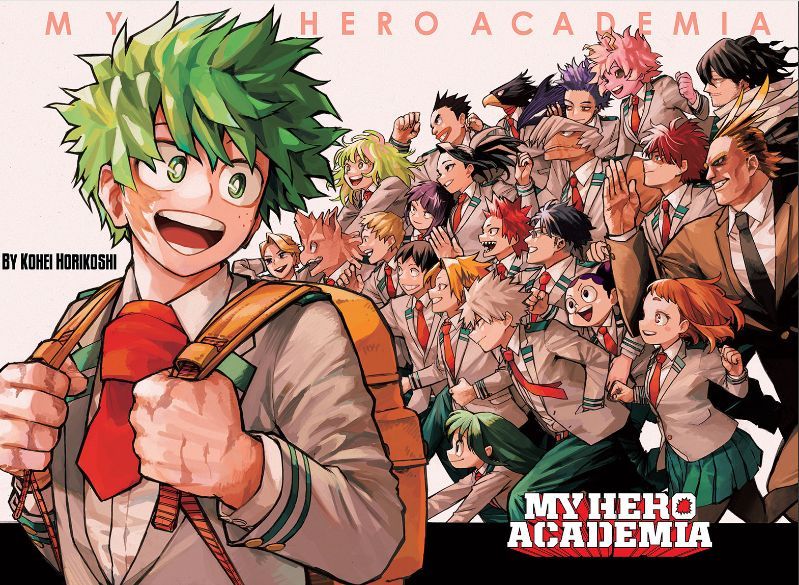So after 10 years, one of the 2010s’ biggest hits is finally over. Kohei Horikoshi’s My Hero Academia was a title that Shueisha and the anime/manga community needed to captivate audiences worldwide. The title coincided with the popularity of American comic book superhero movies over the last decade.
I’ll say that after all I read, My Hero Academia is a great title for exploring how to nurture youth into becoming the best people they can be.
I still remember when I first got into the manga, I wasn’t too initially drawn in. But I got how the interactions between Izuku “Deku” Midoriya and Bakugo Katsuki were a driving point in the story. What really drew into My Hero Academia was when Shoko Todoroki got development in one of the first major arcs. I wrote about this a decade ago when it was happening in the manga. Some youth feel that they don’t have a choice in how to live unless you tell them that they do.
Another one of my favorite parts of the manga was when Deku and Bakugo fought after the Hero License arc. You got to see two young men who couldn’t truly understand each other and felt weak despite being strong. Both were driven so much by All Might that their relationship almost deteriorated if they didn’t address the tension between the two.
I’ve written quite a bunch about My Hero Academia, but I feel like I should have written about the Todoroki family drama and the Tomura Shigaraki trauma. Adverse childhood experiences are a thing and the circumstances regarding the characters involved reeked of ACEs. Children can potentially become villains when faced with abuse within their own homes. They will resort to unhealthy means/outlets to try to cope.
Ultimately, this manga is about how to lead children down a path where even if they are going through something terrible, there’s some sense of hope out there. And at the same time, how do adults become the kind of people to inspire those kids? We don’t want them running into All for Ones, who all think that the whole world needs to burn down in order for peace to occur.
While the final arc was a bit of a drag at times, I got the message that Horikoshi is saying. We have to pass down values, not beliefs. Values that promote compassion, humility, and connection. Anyone can become a villain due to how cruel society can be at times and anyone can be a hero when they meet the kind of people that shows them kindness.
Of course we can’t save everyone, but we can definitely be heroes to the immediate people in our lives. That’s all we can ask for.
In any case, thank you, Horikoshi, for creating a series that became a beacon for many youth looking for some optimism in a world that doesn’t always show it. Thank you for creating a work that does a good job of showing the effects of childhood trauma and youth insecurities on its important characters.
May Plus Ultra continue to inspire the best in all of us!
